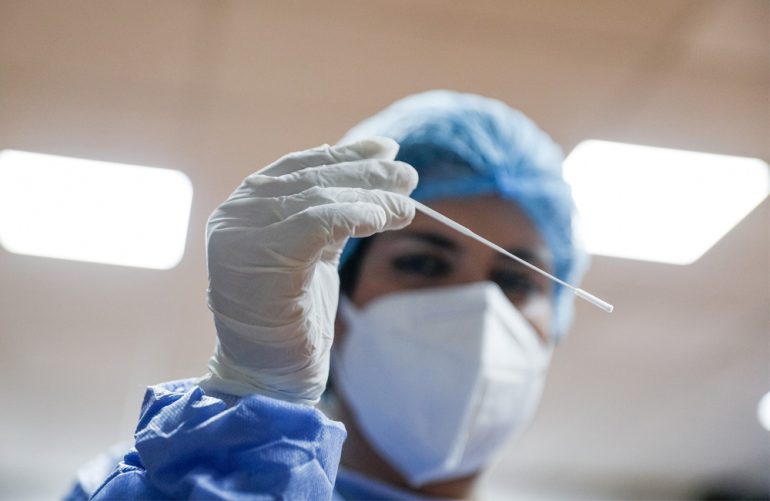The Minister of Health is in contact with the Attorney General and the Chief of Police to investigate whether any offenses are occurring, in order to file a complaint, following publications and other reports for detection by a private laboratory - which is not accredited for relevant examinations, such as refers to a report - toxic substance in colostrum of rapid antigen detection tests.
The Ministry of Health, following posts on social media and press releases that show the result of a private laboratory for the detection of toxic substances in the colonies used to perform rapid detection tests, states that the laboratory that appears to have performed the analysis in sterile is not an accredited laboratory for conducting tests on medical equipment products, but in food according to its accreditation standard (CYS EN ISO / IEC 17025: 2017).
The Ministry emphasizes that worldwide and for decades, ethylene oxide is used as a method of sterilization of medical equipment that aims to protect users from infection with dangerous pathogenic microorganisms.
Therefore, he notes, the procedure is essential for the sterilization of medical equipment and necessary for the protection of public health (more: https://bit.ly/2XOIG9g, https://bit.ly/3vJxp6H).
The substance, it is reported, becomes dangerous when the exposure to it is long (long exposure time and exposure in large quantities). "Because the substance is highly volatile, it is extremely difficult to retain in virtually any medical device, including rapid antigen test kits, stored and opened at room temperature."
In addition, with regard to medical equipment, it is noted that there are strict rules and strict controls take place to ensure that after sterilization, this substance is removed and any residues are well below national and international safety limits.
Specifically, medical equipment that has been sterilized with ethylene oxide complies with the following standards: ISO 11135, Sterilization of health care products - Ethylene oxide - Requirements for development, validation, and routine control of a sterilization process for medical devices. This standard sets out the requirements for the development, validation and regular control of the sterilization process of medical devices.
ISO 10993-7: Biological evaluation of medical devices - Part 7: Ethylene oxide sterilization residuals. This standard sets specific limits for ethylene oxide (EO) and ethylene chloride (ECH) that must not be exceeded in order to ensure the safety of the product and the patient. The data for the observance of these limits are determined during the validation of the sterilization process with EO.
It is noted that in the case of sterile medical devices placed on the European market and sterilized with ethylene oxide, the evaluation of the sterilization process requires an inspection by a notified body approved by the European Union (the list of organizations is posted on the website European Commission at the link: https://bit.ly/3GkOb0P).
"It is pointed out that the laboratory that appears to have performed the analysis in a sterilizer is not an accredited laboratory for conducting tests on medical devices, but on food according to its accreditation standard (CYS EN ISO / IEC 17025: 2017)", it is added.
"The Minister of Health is in contact with the General Prosecutor's Office and the Chief of Police to investigate whether any crimes occur, in order to proceed with a complaint", the announcement concludes.
